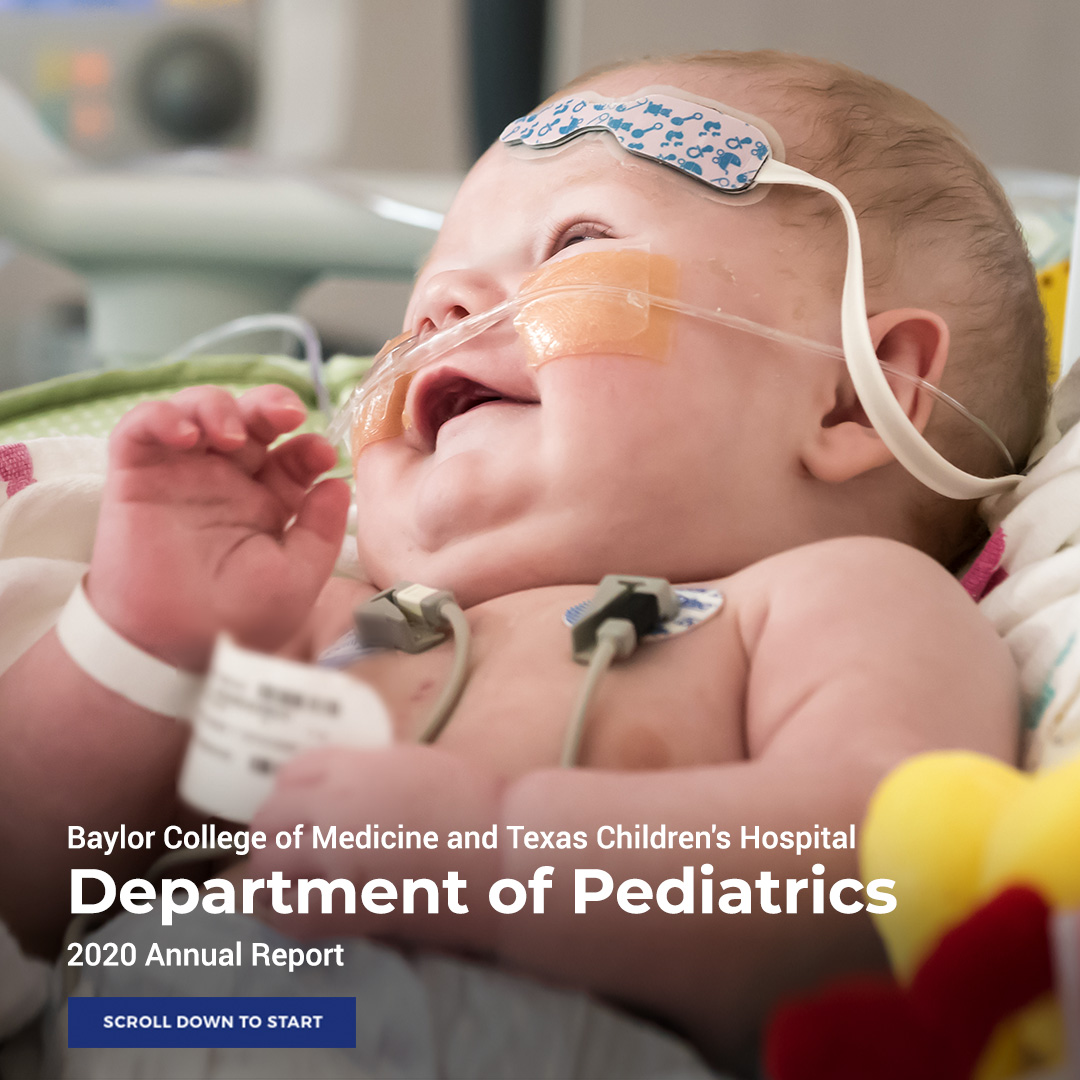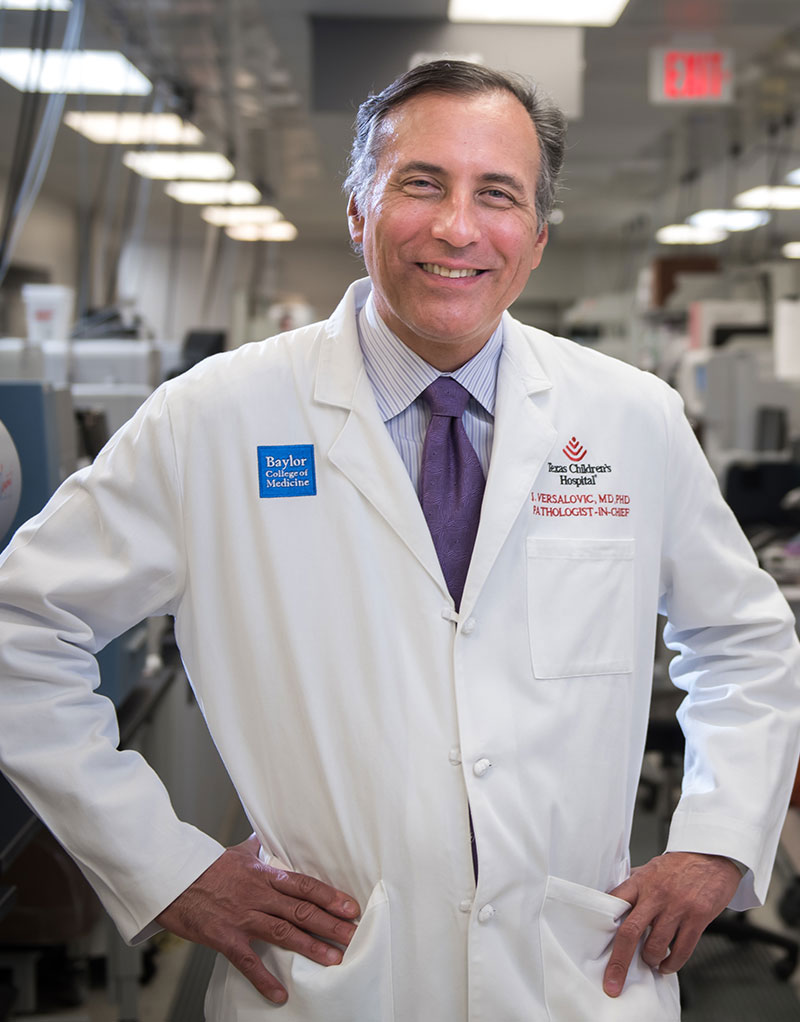Dear Colleagues,
The importance of teamwork in our Department of Pediatrics at Baylor College of Medicine and Texas Children’s Hospital was never more evident than in the challenges brought on by the COVID-19 pandemic.
...
While many hospitals raced to isolate the highly contagious patients and to train staff on protective protocols, Texas Children’s transported patients suspected of having COVID-19 to its Special Isolation Unit at Texas Children’s Hospital West Campus. There, well-trained staff already knew how to prevent spread of the infection and provided state-of-the-art care.
With the pandemic came an introduction to virtual rounds. Virtual rounds, or e-rounding, provided a way to retain the benefits of rounding without the dangers of too much closeness.
The COVID-19 pandemic brought us yet another new disease. The multisystem inflammatory syndrome in children (MIS-C), a rare, dangerous condition that strikes some children four to six weeks after a mild or asymptomatic COVID-19 infection was a brand new entity that involves the care of many different subspecialists in the Department of Pediatrics.
The Center for Vaccine Development at Texas Children’s and Baylor developed a low-cost COVID-19 vaccine that will be produced and evaluated by Biological E in India, one of the world’s largest vaccine producers. This vaccine will be deployed in low- and middle-income countries.
We feel very fortunate to work in such a wonderful Department of Pediatrics, and we hope you enjoy reading about some of the outstanding work done in the clinical, educational and research areas during the chaotic year of 2020:
- When children have difficulty walking or moving due to medical conditions, there’s only so much that can be seen or done in an ordinary clinic setting. At the Motion Analysis and Human Performance Lab at Texas Children’s Hospital The Woodlands, care teams are able to identify and catalog gait abnormalities and develop treatment plans for these patients. It is truly remarkable work.
- Katherine Y. King, MD, PhD, leads research into effects of inflammation on blood production by stem cells in the bone marrow. Findings may help develop strategies to protect and enhance bone marrow function for patients with bone marrow failure, cancer, stem cell transplant, chronic inflammatory conditions and age-associated impaired immunity.
- The Cancer Prevention and Population Sciences Program at Baylor’s Dan L. Duncan Cancer Center is working to understand why children develop cancers so that one day we’ll be able to identify high-risk populations and increase medical surveillance of those individuals.
- Medical staff members in the 12-bed Neuro-Intensive Care Unit have both interest in and special training in the brain and critical care. Although common for adults, comprehensive neurocritical care units for children are rare. It is a good example of what makes Texas Children’s Hospital stand apart from other institutions.
Because we recognize that training the next generation of pediatricians is a vital part of what we do, each year we spotlight one educator who’s had an immeasurable impact on the students he or she teaches. This year, we feature Dr. Fernando Stein. We hope you enjoy his story and the others in this annual report.
Our welcome would not be complete without acknowledging Dr. Catherine M. Gordon. She will join us as Chair of the Department of Pediatrics at Baylor and Pediatrician-in-Chief at Texas Children’s in October 2021.
Wishing everyone all the best,
Interim Chairman
Department of Pediatrics
Baylor College of Medicine
Pathologist-in-Chief
Interim Pediatrician-in-Chief
Texas Children’s Hospital

 Gordon E. Schutze, M.D.
Gordon E. Schutze, M.D. James Versalovic, M.D., Ph.D.
James Versalovic, M.D., Ph.D.





